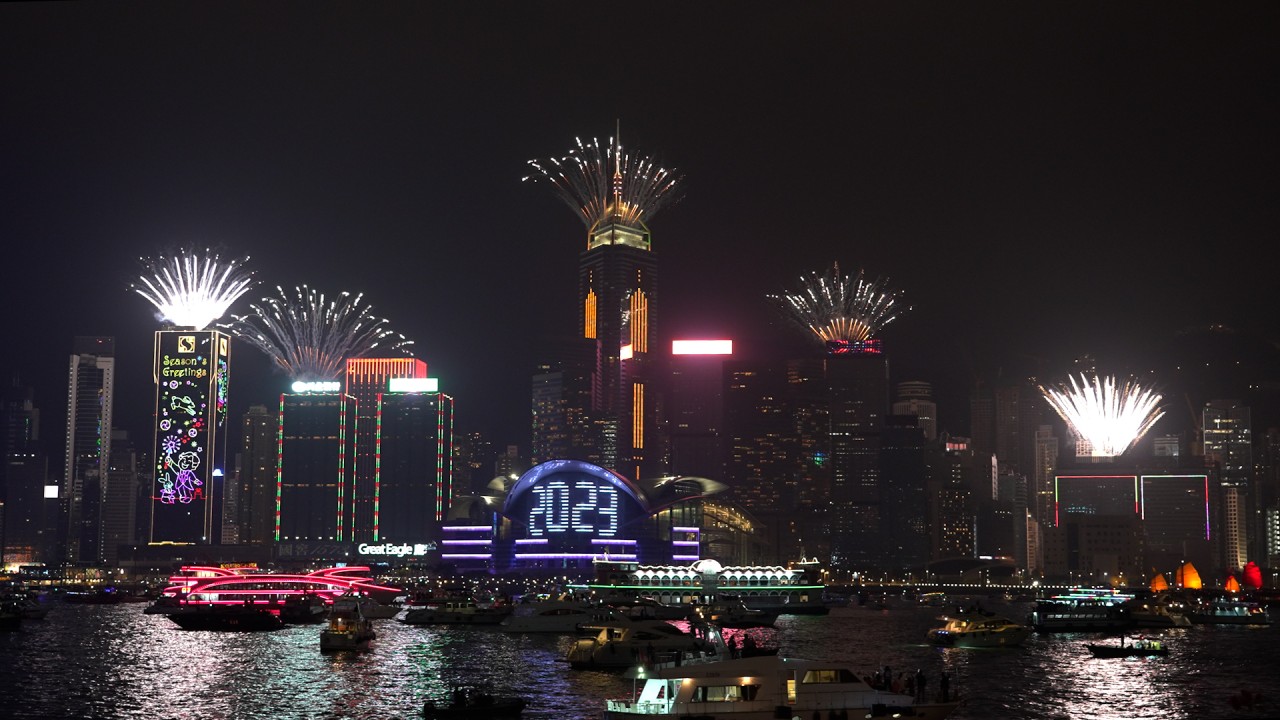
Hong Kong aims for January 8 reopening of border with mainland China, city’s No 2 official says in clearest indication yet on long-awaited date
- Chief Secretary Eric Chan says checkpoints that have been closed for three years are poised to resume operations, with ‘quota’ set in first phase
- City leader John Lee had earlier indicated mid-January target
Hong Kong is aiming quarantine-free travel with mainland China as early as January 8 to pave the way for a full reopening of the border, the city’s No 2 official has said.
Chief Secretary Eric Chan Kwok-ki, who is coordinating work across all 15 government bureaus on finalising details with central authorities, said on his weekly blog on Sunday that some checkpoints that had been closed for three years were poised to resume operations.

Hong Kong on Sunday recorded 23,361 Covid-19 infections, 326 of which were imported, as well as 62 related deaths. The city’s total tally stands at 2,648,994 cases and 11,869 fatalities.
Chan said: “We will set a quota on the number of travellers commuting between Hong Kong and the mainland and will increase the frequency of sea, land and air transport to meet demand.
“Depending on the first phase of the situation, we will gradually expand the scale for a complete reopening of the border.”
Chan recommended that travellers from both sides undergo polymerase chain reaction (PCR) Covid-19 tests to ensure they were negative before crossing the border.
A PCR test up to 48 hours before departure will be the only requirement for global travellers to mainland China from January 8, after the country scraps centralised quarantine and on-arrival tests, as well as the requirement that visitors apply for a preflight health code.
From that date, central authorities will also resume issuing tourist and business visas for Chinese nationals to enter Hong Kong.
Chan on Sunday said some of the 14 border checkpoints would resume operations after only three – the airport, the Hong Kong-Zhuhai-Macau Bridge and Shenzhen Bay – maintained services amid the pandemic. The Post learned recently that thousands of officers from the city’s customs, immigration and police agencies had been redeployed from other duties to major control points.
Secretary for Transport and Logistics Lam Sai-hung on Sunday said that drills on different modes of cross-border transport would launch as soon as possible. “We are liaising with transport operators.”
But local operators of tour buses catering to mainland tourists said it would be impossible to get vehicles ready by January 8, with many of the previously idle coaches in need of cleaning, repairs or replacement, as well as a renewal of licences, permits and insurance policies.
Timothy Chui Ting-pong, executive director of the Hong Kong Tourism Association, said tour operators had already started organising coach repairs.
“They will definitely not be ready by January 8 because we don’t expect tourists to immediately return when borders reopen. It is impossible that there will suddenly be hundreds of tour groups needing thousands of buses,” he said.
Chui added that more observations need to be done to assess the demand for tour buses upon the border reopening.
Teddy Chung Wai-tong, a local tour operator with 20 local coach buses, said he had begun his own preparations after authorities last week first announced their plans to begin fully reopening the border.
He said most of his buses were in need of repair, on top of all the necessary paperwork.
“It takes time … with insurance renewal taking up most of the [preparation] time,” he explained. “They won’t be ready by January, but we hope everything will be ready by early February.”
In response to the sooner-than-expected border reopening, Hong Kong Tourism Board chairman Pang Yiu-kai, referring to examples overseas, said it could take a couple of years before the industry returned to normal.
“This will boost the momentum of recovery in exports, tourism, retail and food as well as catering,” he wrote. “Domestic spending will rebound significantly in the first quarter of this year.”

Allen Shi Lop-tak, president of the Chinese Manufacturers’ Association of Hong Kong, one of the city’s largest business groups, said sector members were excited about the border reopening and hoped a daily quota of between 25,000 and 30,000 people would be allowed in the early stages.
“A lot of businessmen including myself have not been checking our factories on the mainland in the past few years. You have no idea what is happening if you are not there for a long time. This can disrupt your business plans or whether you should increase production lines,” Shi said.
He estimated that the border reopening could generally restore 20 to 30 per cent of business for the sector.
Dr Tony Ko Pat-sing, chief executive of the Hospital Authority, said as Hong Kong was about to resume quarantine-free travel with the mainland and had relaxed Covid-19 measures, the authority would focus on protecting those at high risk, especially the young and elderly.
“While expecting infections to rise, we are also making service adjustment plans under different risk assessments,” he wrote on his blog on Sunday.
“We have allocated resources for designated clinics and telecommunication services for Covid-19 patients, and increased quota for priority groups, providing treatments to those at high risk as early as possible.”
Ko said authorities would ensure adequate stocks of antiviral medicine and other drugs such as fever relief and paracetamol-based pills, as well as streamline distribution procedures.
Additional reporting by Oscar Liu




